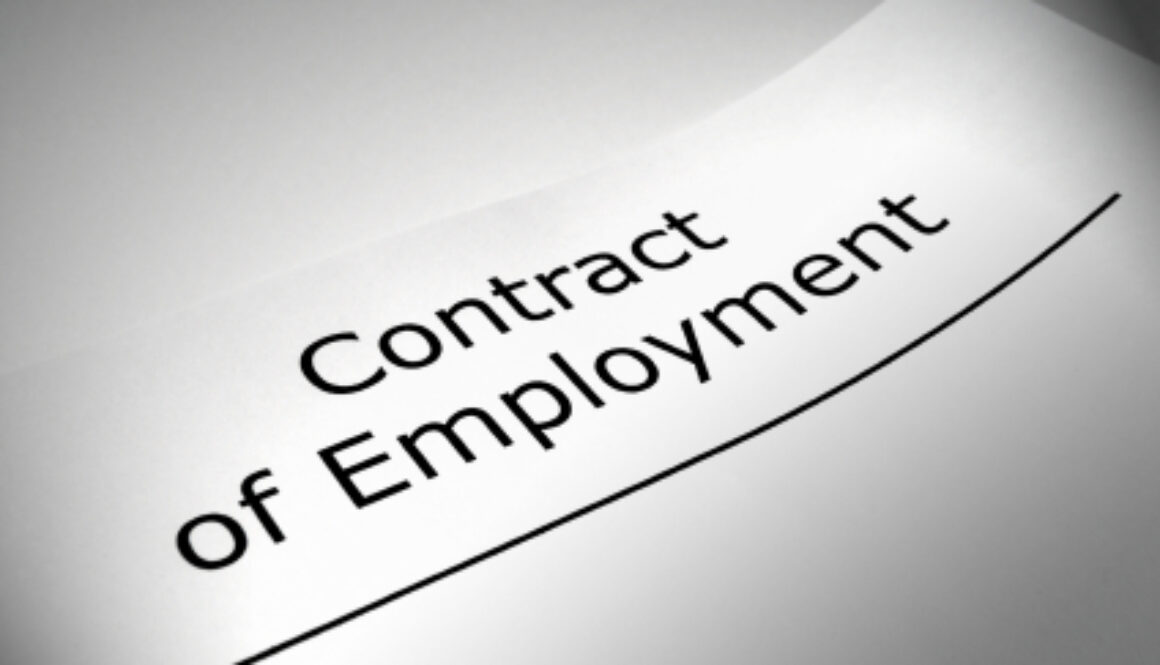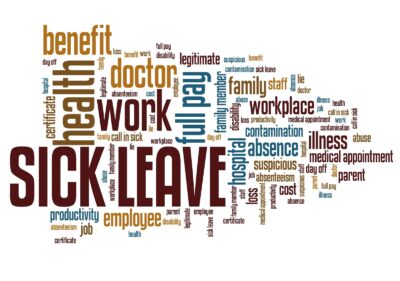
#outsourcedhumanresources


Why Your Business Needs Employment Contracts. | Consensus HR in Herts, Beds
Latest blog:
Can your business spare £25,000?
This is the amount it could cost for not providing an Employment Contract to an employee. If the individual involved decides to go to a High Court instead of an employment tribunal, the cost could reach £50,000.
Are you at risk of a hefty penalty?
The Consensus HR team often provides HR Health Checks and employment law advice regarding our clients’ HR provision. One of the most common questions raised by employers is: ‘Why do we need Employee Contracts?’
Business owners/managers also query the benefits to the business. This is usually due to concern about investing time and funds in creating Employee Contracts.

Why a business should provide Employment Contracts
An Employment Contract ensures that everyone is fully aware of:
- the main terms within the business, and
- the main terms of their employment.
It includes details such as:
- Name of employer and employee
- Pay and whether it’s weekly, monthly pay etc.
- Job description/job title
- Pensions and pension schemes
- Date employment and continuous employment started
- Working hours
- Details of any collective agreements that directly affect the employee’s conditions of employment.
- Disciplinary and grievance procedures following the Acas Code of Practice.
- Job location
- Holiday entitlement
- Sick leave and pay entitlements
- Appeals procedure under the Discipline & Grievance.
The risks of not providing Employment Contracts
It is a legal requirement for businesses to provide employees with a written statement of the terms and conditions of their employment (their Employment Contract), on their first day of employment. If this is not in place, you could be taken to an employment tribunal and fined between two and four weeks’ pay. This also tarnishes your reputation as an employer, impacting potential staff recruitment and retention.
More importantly, written terms of employment offer some protection (for you and your employees) should there be disagreement about what was agreed. ‘These disagreements could result in a breach of contract claim, with a potential penalty of up to 25,000 at an employment tribunal or up to £50,000 at the High Court,’ explains Matthew Chilcott of Consensus HR. ‘It’s definitely not worth taking any risks.’
He adds: ‘When we write an Employment Contract, we ensure all required details are included. We look beyond the essential items to check what other terms may be relevant and helpful to your business. Items such as ‘deductions from wages’ are often overlooked, for example. This is needed when an employee leaves the business, is working within a probation period or has compassionate leave, to name a few scenarios.’
Are you worried about your current Employment Contract?
Would you like reassurance that your business is fully compliant and working to best practice?
Talk to the friendly team at Consensus HR. Contact us now on 01438 576750 or alternatively complete our Contact Form.
To view more about our range of HR & Employment Law Services
Are you concerned about keeping your business up to date with Employment Law changes?
Your Outsourced Human Resources (HR) Department.
For further information on any of the HR subjects we provide, please click the heading below:


Low Pay Commission starts work on recommendation for 2025 minimum wage | Consensus HR in Herts, Beds
Latest blog:
The Low Pay Commission (LPC), the independent body which advises the Government on the levels of the National Minimum Wage (NMW), including the National Living Wage (NLW), has launched a call for evidence to inform its advice to the Government on the minimum wage in 2025 and beyond.
With full details available on the GOV.UK website, it is seeking input to shape the recommendations which it will make to the Government this autumn, on minimum wage rates to apply from April next year.
The deadline for submitting evidence is 7 June 2024.
The Department for Business and Trade (DBT) has published a new remit for the LPC which can be found here.
This asks the Commission to recommend an NLW rate for April 2025 “to maintain the bite at two-thirds of median earnings and protect progress made to end low hourly pay for this group, without recommending any further revisions to the age threshold”.
The LPC estimates that the rate required to meet this aim is within the range of £11.61 and £12.18, with a central estimate of £11.89.
The Government also asks the LPC to monitor and evaluate the levels of each of the different NMW rates (under-18 and 18–20 age groups and apprentice rate) and make recommendations on the increases it believes should apply from April 2025, such that the rates are set as high as possible without damaging the employment prospects of each group.
The TUC has criticised the Government for its decision to “tie the hands” of the LPC.
General Secretary, Paul Nowak, said: “Keeping the minimum wage at two-thirds of median earnings will deliver a paltry increase of just 15 pence next year — based on the latest forecasts. Ministers should be instructing the LPC to aim for 75% of median pay. This would help deliver a £15 an hour minimum wage and make work pay for millions.”


Our HR comment:
Our HR Comment / Advice – Low Pay Commission starts work on recommendation for 2025 minimum wage | Consensus HR in Herts, Beds
Matthew Chilcott, FCIPD, ACEL, Owner of Consensus HR comments: “With the most recent pay rate increases happening at the beginning of this month with on average £1 per hour extra, it is interesting to see that that the low pay commission are starting to work on the rates for 2025. This article from HR inform gives some useful links to Government websites where further information can be found. We have written a number of previous blogs on minimum wage which can be found by clicking on the relevant title below:
Do you need help with your HR and Employment Law?
Are you concerned about keeping your business up to date with Employment Law changes?

TUC calls for AI to be regulated in the workplace – Consensus HR in Herts, Beds
Latest blog:
The TUC has warned that Britain is failing to keep up with the regulation of AI in the workplace, leaving workers vulnerable to exploitation and discrimination. It has proposed a legal blueprint for regulating AI, including a legal duty for employers to consult trade unions on the use of high-risk and intrusive forms of the technology. Other countries such as the US, China, and Canada are already implementing new laws for the use of AI. TUC assistant general secretary Kate Bell said: “UK employment law is simply failing to keep pace with the rapid speed of technological change. We are losing the race to regulate AI in the workplace. AI is already making life-changing calls in the workplace, including how people are hired, performance managed and fired. We urgently need to put new guardrails in place to protect workers from exploitation and discrimination. This should be a national priority. Other countries are regulating workplace AI – so that staff and employers know where they stand. The UK can’t afford to drag its feet and become an international outlier.”

Our HR Comment / Advice: TUC calls for AI to be regulated in the workplace – Consensus HR in Herts, Beds
Matthew Chilcott, FCIPD, ACEL, Owner of Consensus HR comments: “AI seems to have been a very hot topic within the business world for quite some time now, with many variations out there in the IT world. I have spoken to a few business colleagues about its use, and some are keen users and others, not so and prefer to stick with human marketeers as we do, whilst also writing it ourselves. This article reported in a few media channels and in relation to the TUC – Trade Union Congress makes an interesting point. Our Chartered Institute Of Personnel & Development (CIPD) have written a Policy in relation to AI and Chat GPT outlining Risks, Use and Confidential or Sensitive information and we are sure that this just the start as AI may become used more.”
Some of our previous blogs written on the subject:
- Government issues draft guidance on working with AI | Consensus HR – Herts, Beds
- Musk tells Sunak that AI will mean people no longer need to work | Consensus HR | Herts, Beds
- From automation to job creation: UK firms embrace AI and robotics | Consensus HR – Herts, Beds
- Gen Z’s AI fluency can provide a career advantage.
- Half of business leaders – AI better than their staff
Are your companies HR Policies & Procedures up to date?
Are you concerned about keeping your business up to date with Employment Law changes?
Your Outsourced Human Resources (HR) Department.
For further information on any of the HR subjects we provide, please click the heading below:


Stress Awareness Month | Consensus HR in Herts, Beds
Latest blog: Stress Awareness Month: NEBOSH and CIPD join HSE’s Working Minds campaign
Further to our blog written earlier this month, the Health & Safety Executive (HSE) have published an excellent article which can be seen below with a range of useful tools for business owners to ensure they and their teams are working to current Health & Safety Law / best practice. Our Chartered Institute of Personnel & Development (CIPD) which we are fully accredited to, have also recently become partners as outlined below:
April is stress awareness month and HSE is urging employers to prevent and reduce stress in their workplace.
HSE’s Working Minds campaign brings together a range of tools and support to help businesses. These include:
- free online learning
- talking toolkits
- risk assessment templates and examples

The Chartered Institute of Personnnel and Development (CIPD) and The National Examination Board in Occupational Safety and Health (NEBOSH) are the latest organisations to join as campaign partners, taking the total number of supporters to more than 30.
HSE and NEBOSH have also jointly developed the NEBOSH HSE Certificate in Managing Stress at Work. This one-day qualification is aimed at helping you and your organisation identify and reduce workplace stressors in order to create a positive, healthier workplace.
To view more about our range of HR, Employment Law & Health & Safety Services.
Are you concerned about keeping your business up to date with Health & Safety changes?
Your Outsourced Human Resources (HR) Department.
For further information on any of the HR subjects we provide, please click the heading below:


When Workplace Banter Becomes Bullying | Consensus HR in Herts, Beds
Latest blog:
Workplace bullying disguised as banter has affected 32% of people in the UK. This is a worrying fact arising from research by law firm Irwin Mitchell, 2023.
Words that one person finds funny can cause offence to someone else. Workplace banter is a sensitive area that’s involved with an increasing number of employment tribunal cases. In 2022, 66 claims were made, including comments which could be considered bullying or harassment.
Employers must take this seriously. In 2023, an employment tribunal heard from Miss Hunter who was employed by Lidl from 5 February 2019 to 23 August 2021.
Just because an employee has a protected characteristic, this doesn’t mean that everything that happens to them in the workplace is because of that characteristic.

Miss Hunter brought claims for direct sex discrimination, harassment, equal pay, constructive unfair dismissal and unlawful deduction of wages. She claimed that a colleague:
- initiated conversations in an attempt to discuss her love/sex life,
- regularly touched on the bum, thighs, waist, and
- frequently attempted to hug her.
This was despite making it clear that this was unwanted attention and should stop. The behaviour only stopped because another colleague witnessed this and told the person to stop.
In addition to receiving this harassment, Miss Hunter was placed on the wrong salary band when promoted to a shift manager role on 1 August 2020. This meant she received lower earnings than two male shift manager colleagues. Also, her pay was automatically deducted although she did take the (unpaid) breaks she was entitled to.
The Employment Tribunal found in Miss Hunter’s favour awarding her £50,884, inclusive of £22,000 award for injury to feelings.
Other recent Employment Tribunal cases include:
- A manager being called a homophobic name.
- An Indian employee being called a “cheeky monkey” during a round of golf.
- A female employee being called “menopausal” and a “dinosaur”.
- An insinuation that an employee must be gay because they don’t like football.
In each case, banter was used unsuccessfully as a defence (HR Magazine).
‘Banter is often used as an excuse to cover up poor attitudes and behaviours,’ says Matthew Chilcott of Consensus HR. ‘What may seem like harmless fun may cause upset. Ultimately, if you had to explain the comment and humour involved, would it seem fair and innocent?’
If it is proven that one of the protected characteristics is discriminated against, compensation awards can be:
- an unlimited amount, and
- applied from the person’s first day of employment with the company involved.
When is workplace banter ok?
Lawyers GQ|Littler explain that there are circumstances when “banter’ can be used as a justification. These are when:
- the conduct wasn’t unwanted, i.e. if the employee also engaged in similar behaviour and jokes,
- the behaviour was not connected to a protected characteristic (see above), and
- the employee wasn’t offended by the conduct, or it wasn’t reasonable for them to have been offended.
‘Employers should introduce clear policies, communication and staff training to ensure their workplace offers respect and equality for all employees,’ explains Matthew. ‘This doesn’t mean the end of workplace humour though! People should just avoid jokes that may cause offence, especially those relating to protected characteristics.’
Consensus HR offers a range of services to ensure your company complies with employment law and offers robust, fair HR policies. To find out more and ensure you are a fair, inclusive employer, arrange an initial chat with Matthew, without obligation or HR jargon.
To view more about our range of HR & Employment Law Services
Are you concerned about keeping your business up to date with Employment Law changes?
Your Outsourced Human Resources (HR) Department.
For further information on any of the HR subjects we provide, please click the heading below:


Deutsche Bank to provide menopause pods in London office | Consensus HR | Herts, Beds, UK
Latest blog:
Deutsche Bank to provide menopause pods in London office | Consensus HR | Herts, Beds, UK
Deutsche Bank is set to introduce “reset and recovery pods” in its new London office to support menopausal women. The private booths will feature reclinable chairs and temperature controls to help alleviate symptoms such as hot flushes and migraines. The pods are part of Deutsche Bank’s new wellness suite, which will also include physiotherapy facilities, GP clinics, a mindfulness space, and a multifaith prayer room. The move comes after London headquartered law firm Shoosmiths announced plans to introduce similar “wellness rooms” for menopausal women in its offices. The rooms, which were first introduced in Shoosmiths’ Birmingham office, feature temperature controls, light boxes, and beds for employees to lie down. The introduction of these spaces follows new guidance from the UK’s Equality and Human Rights Commission, which states that menopause symptoms can be considered a disability in the workplace. Employers could face legal action if they do not make reasonable adjustments to support menopausal women.

Our HR comment:
Deutsche Bank to provide menopause pods in London office | Consensus HR | Herts, Beds, UK
Matthew Chilcott, FCIPD, ACEL, Owner of Consensus HR comments: “This is a subject we have written many blogs on in the past and is interesting to see how this employer is supporting wellness for its team in the workplace. Some of our previous blogs can be seen here:”
- Menopause symptoms can be considered a disability
- Acas says companies should provide menopause awareness training for managers. | Consensus HR – Herts, Beds
- Government appoints first menopause tsar.
- Menopause leave rejected by ministers
- World Menopause Day
- UK falls down the rankings in Women in Work Index | Consensus HR | Herts, Beds
To view more about our range of HR & Employment Law Services
Are you concerned about keeping your business up to date with Employment Law changes?
Your Outsourced Human Resources (HR) Department.
For further information on any of the HR subjects we provide, please click the heading below:


April is Stress Awareness Month: tackle stress in the workplace with five steps in five weeks | Consensus HR | Herts, Beds, UK
Did you know? April is Stress Awareness Month:
This April, Britain’s bosses are being invited to follow five simple steps to prevent and reduce stress in their workplace.
The Health and Safety Executive’s (HSE) Working Minds campaign has called on employers to support workers mental health during Stress Awareness Month.
Liz Goodwill, head of the work-related stress and mental health policy team at HSE, said: “We are inviting business owners, employers and managers to join others across Britain to make a difference during Stress Awareness Month in five steps.”
Over the course of the month, employers are encouraged to focus on one of the campaign’s 5 Rs for each of the five weeks.

They are:
-
to Reachout and have conversations,
-
Recognise the signs and causes of stress,
-
Respond to any risks you’ve identified,
-
Reflect on actions you’ve agreed and taken,
-
make it Routine.
Preventing work-related stress isn’t just the right thing to do by workers, it’s the law. All employers are required to prevent work related stress to support good mental health in the workplace.
The Working Minds campaign brings together a range of tools and support to help businesses and workers including free online learning, Talking Toolkits, risk assessment templates and examples.
Liz added: “Failing to manage work-related stress can cost employers in reduced productivity, sickness absence costs, or even losing a valued member of the team. Employers are required to assess the risk of work-related stress impacting their workers, and act on the risks identified.
“As well as guiding you step by step, we provide all the practical templates, tools and resources you need to get started or, you can use it as an opportunity to review what you already do. A huge part of this is making it part of your everyday working life, not just a one-off tick box that gets forgotten about.”
The CIPD, the professional body for HR and people development, and The National Examination Board in Occupational Safety and Health (NEBOSH) are the latest organisations to join as campaign partners, taking the total supporters to more than 30.
Rachel Suff, senior policy advisor, employee relations at the CIPD, says: “Many organisations are reactive and tend to put more emphasis on providing support when people become ill rather than on prevention, including for mental ill health and stress. We need both! We want to see every organisation taking a proactive approach to employee wellbeing. We’re supporting the Working Minds campaign to help employers to create the working conditions and environment that prevents stress and supports good mental health. That also means designing jobs with realistic workloads and targets, and encouraging people to have a healthy work-life balance.”
There are six main areas that can lead to work-related stress if they are not managed properly. These are: demands, control, support, relationships, role and change. Factors like skills and experience, age, or disability may all affect someone’s ability to cope.
Matt Powell-Howard, Head of Product Development at NEBOSH, said: “I’m really pleased that NEBOSH is supporting the Working Minds campaign as we are committed to promoting good mental health and preventing work-related stress. We were delighted to have also collaborated with HSE on the development of the NEBOSH HSE Certificate in Managing Stress at Work qualification, which is designed to help business meet their legal obligations in this area.”
If you are an employer looking for support, a good place to start is to register for free bitesize learning. https://workright.campaign.gov.uk/working-minds-learning/
HSE – 4-04-24
To view more about our range of HR & Employment Law Services
Are you concerned about keeping your business up to date with Employment Law changes?
Your Outsourced Human Resources (HR) Department.
For further information on any of the HR subjects we provide, please click the heading below:


More companies offer staff free testing for ADHD | Consensus HR | Herts, Beds

The UK’s largest long-term savings and retirement business, Phoenix Group, has joined a growing list of companies offering to test workers for attention deficit hyperactivity disorder (ADHD) amid concerns that NHS delays are leaving many without support. The entertainment giant Disney is now also offering all employees ADHD and autism assessments under its private healthcare service. The Telegraph notes that magic circle law firms Clifford Chance, Freshfields Bruckhaus Deringer, and Allen & Overy have all introduced workplace schemes which help lawyers with ADHD diagnostics and support. PwC UK also provides testing for neurological conditions including dysgraphia, a disorder where people have difficulty reading and writing.
Our HR Comment / Advise: More companies offer staff free testing for ADHD | Consensus HR | Herts, Beds
Matthew Chilcott, FCIPD, ACEL, Owner of Consensus HR comments: “ADHD is covered under the Equality Act 2010 and required employers to make reasonable adjustments in the workplace for all members of the team and job applicants. Employees / applicants who have a disability or long-term health condition are covered and ADHD qualifies for both,

Most people with ADHD do not tend to tell their employers as they are worried about any possible repercussions at work. However, employers / members of the management team should encourage an open atmosphere where members of the team can be open and honest, so that if any reasonable adjustments are needed, they are implemented. Employers, should arrange to seek the appropriate medical advice from a medical professional so that the member of team is able to work and not be seen as less capable or as troublesome, especially given the stigma that surrounds ADHD.
Attention Deficit Hyperactivity dDsorder (ADHD), autism and dyspraxia are forms of neurodivergence – there are others too. Being neurodivergent will often amount to a disability under the EQa 2010, even if the person does not consider themselves to be disabled.”
To view more about our range of HR & Employment Law Services
Are you concerned about keeping your business up to date with Employment Law changes?
Your Outsourced Human Resources (HR) Department.
For further information on any of the HR subjects we provide, please click the heading below:


Hilton Foods Solutions Ltd v Wright – Parental leave: Detriment for seeking to take | Consensus HR | Herts, Beds

To be protected against suffering a detriment for seeking to take parental leave, an employee does not formally have to apply to take the leave.
Note for employers:
This provides useful clarity on a particular point of law, and with family related rights under the spotlight as new entitlements are given and existing ones are changed, anything that makes the management of these clearer would be welcomed by employers.
As a result of this case, employers should bear in mind that the protection offered under the regulations arise even where an informal request or indication to make one has been made, and that this protection applies before two years’ service is reached. Employees who make such enquiries or indications should be treated reasonably and fairly both in relation to their leave request and in any other unrelated proceedings or processes that are undertaken.
Law:
The law provides protection from dismissal because an employee has “sought” to take parental leave via a combination of Section 99 Employment Rights Act 1996 (“ERA”) and Regulation 20 of the Maternity and Parental Leave etc. Regulations 1999 (MPLR).
Section 99 of the ERA provides that an employee should be treated as unfairly dismissed where the reason (or main reason) for the dismissal relates to leave for family reasons, including parental leave. Regulation 20 of the MPLR adds that this applies where the employee “took or sought to take…parental leave”.


Facts:
The claimant was employed as a Logistics/Supply Chain Manager, working for the respondent for a little over a year before being dismissed on grounds of redundancy. Prior to his dismissal, the claimant had informally discussed taking unpaid parental leave to look after his disabled son with his colleagues, including the HR department, his line manager and the respondent’s managing director. On speaking to the managing director of his intentions, the claimant was reportedly told “so you want to go f*ing legal then” and that he was expected to be in the office “Monday to Friday, 8-5pm with no exceptions”. This was reported to HR, but the behaviour was dismissed as typical for the managing director. In the end, the claimant did not at any time make a formal request to take Parental Leave.
Following the dismissal, the claimant brought a claim for automatic unfair dismissal on the basis that the real reason for the dismiss was his intention to request parental leave, and not redundancy as the respondent had purported.
Employment Tribunal (ET):
At a preliminary hearing the respondent applied to strike out the claim on the basis that it had no reasonable prospect of success. This argument before the ET was based on the fact a formal request for parental leave was never in fact made, despite the claimant acknowledging that this was a requirement to take the leave. As no formal request had materialised, the claimant had not, the respondent argued, as a matter of law have sought to take parental leave, which is necessary for the legal protection to apply.

This was rejected by the ET. It was held that the claimant had made informal enquiries regarding taking parental leave and made it clear on a number of times that he intended to take it. This was sufficient for the ET to find that the claimant had ‘sought’ to take parental leave.
This was appealed by the respondent on the basis that the MPL regulations required a written application to be made in order for it to be said that an employee has sought to take parental leave.

Employment Appeal Tribunal (EAT):
According to the EAT, there is no absolute requirement under the MPL Regulations for an employee to have given notice as set out in those regulations for an employee to have “sought” to take parental leave. The word “sought” is an ordinary English word and in this regard, it should be given its ordinary meaning. Whether or not an employee had sought to take leave under the MPL regulations was therefore a question of fact. Had it been intended otherwise, the regulations would specify that the giving of notice was required for the protection against dismissal to apply, rather than using “sought” instead.
HRInform
Our HR Comment / Advice: – Hilton Foods Solutions Ltd v Wright – Parental leave: Detriment for seeking to take | Consensus HR | Herts, Beds
Matthew Chilcott, Owner of Consensus HR comments: “This is a very interesting recent case and demonstrates that even though it may say in a company’s HR Policies and Procedures that you must apply in writing, if an employee has demonstrated that they intend on taking a specific employee right, this should be seriously taken into account and not ignored, if no official application is received. Employers need to ensure that should any member of the team demonstrate an interest / wish in any employee rights that this is considered and taken into account when any other HR measures are considered. In this situation, and as outlined the two-year ruling did not apply due to the subject. At Consensus HR, we always ensure that our clients follow the law to best practice and the law regardless of length of service and from day one of employment”.

To view more about our range of HR & Employment Law Services
Are you concerned about keeping your business up to date with Employment Law changes?
Your Outsourced Human Resources (HR) Department.
For further information on any of the HR subjects we provide, please click the heading below:


Sick people leave workforce at record highs | Consensus HR | Herts, Beds

The number of people in the UK leaving the workforce due to long term sickness has hit the highest level on record, according to Resolution Foundation analysis. The number of adults who are economically inactive due to ill-health climbed from 2.1m in July 2019 to 2.8m in October 2023, marking the “longest sustained rise” since 1994-1998, when records began. The rise in long-term sickness means the UK is the only G7 economy which has not returned to its pre-pandemic employment rate. Louise Murphy, senior economist at the Resolution Foundation, said Britain’s labour market is “finally returning to normal,” but warned that the pandemic “has left an alarming legacy of the longest sustained rise in sickness-related inactivity since the 1990s.”
She noted: “Younger and older people together account for nine-tenths of the rise in overall economic inactivity,” and warned that this could have “serious effects both on individuals’ living standards and career paths, as well as wider strains on the NHS and welfare spending if we fail to improve the nation’s health and reduce economic inactivity.” Shazia Ejaz at the Recruitment and Employment Federation, believes long NHS waiting lists “are a big factor for why not enough people are well enough to work,” adding “Better infrastructure around transport, childcare and social care will all help tackle the inactivity challenge the UK faces.”
Our HR Comment / Advice: Sick people leave workforce at record highs | Consensus HR | Herts, Beds
Matthew Chilcott, FCIPD, ACEL, Owner of Consensus HR comments: – “This article which was shown on the BBC over the weekend demonstrates how difficult it still is for businesses within the UK, when dealing with sickness. The Pandemic may have officially finished but its repercussions as still dominant within the workforce. At Consensus HR, we work with our clients to ensure that the best HR Policies & Procedures are put in place to support the team and the business and that they are managed and implemented correctly. We are Partners with Breathe HR an IT system that makes it easy to manage correctly whilst ensuring the correct support and guidance is offered to the team member and management.

To view more about our range of HR & Employment Law Services
Are you concerned about your team and sickness within your business?
Your Outsourced Human Resources (HR) Department.
For further information on any of the HR subjects we provide, please click the heading below:


UK falls down the rankings in Women in Work Index | Consensus HR | Herts, Beds

The UK has slipped four places — from 13th to 17th, the largest annual fall in rankings experienced by any Organisation for Economic Co-operation and Development (OECD) country this year — in the annual Women in Work Index compiled by PricewaterhouseCoopers (PwC).
The Index, which assesses progress made towards achieving gender equality at work across 33 OECD countries, also finds that the UK’s gender pay gap has widened by 0.2%, making it higher than the OECD average and more than half of the other 32 countries assessed on the Index.
It can be found on the PwC website.
Luxembourg, Iceland and Slovenia are currently the best performing with Scotland being the UK’s top performing region, jumping from third place to first.
PwC UK Economist, Tara Shrestha Carney, said: “While a fall in rank is never good news, it’s important to note that the UK’s declining position on the Index is not necessarily because the UK is doing worse, but because other countries are doing things better and faster when it comes to achieving gender equality at work.”
Clearly, though, she went on, progress is too slow. Over the last decade, the UK has consistently lagged behind the OECD in this area and, at the current rate of progress, it will take nearly half a century to close the UK gender pay gap.
The report finds that, even after accounting for a range of pay-determining factors, the pay disparity between women and men in the UK still persists with women earning almost a tenth less than men on average.
This “gender pay penalty” worsens with age, with women between the ages of 46 and 65 experiencing more than twice the gender pay penalty than that of women between 16 and 30 years. Indeed, while a woman entering the workforce faces a pay penalty of around 5.2% on average, this widens to nearly 13% as her career unfolds.
The report highlights the “motherhood penalty”, with women taking on an unequal share of childcare responsibilities, as a key driver.
This is compounded by men often having more time available to perform so-called “greedy jobs”, which demand unpredictable and longer hours and tend to be more highly paid.
Our HR Comment: – UK falls down the rankings in Women in Work Index | Consensus HR | Herts, Beds
Matthew Chilcott, FCIPD, ACEL Owner of Consensus HR comments: “This article is very interesting in relation to our rating slipping four places to 17 and highlights the need for businesses to ensure that they are acting fully on their equality policy as well as working to best practice in all areas of HR such as Recruitment.
Here are a few of our previous blogs written on the subject which can be read by clicking on the heading:
- Government amends Equality Act to ensure rights continue | Consensus HR – Herts, Beds
- Income inequality narrows as minimum wage rises | Consensus HR | Herts, Beds
- Two in five think equality drive discriminates against men
- Ayche v The Hop Box Ltd – Disability discrimination: Reasonable adjustment | Consensus HR – Herts, Beds
- Menopause symptoms can be considered a disability
- £309,867.86 – Borg-Neal v Lloyds Banking Group – Unfair dismissal: Band of reasonable responses | Consensus HR – Herts, Beds

To view more about our range of HR & Employment Law Services
Are you concerned about Equality within your business?
Your Outsourced Human Resources (HR) Department.
For further information on any of the HR subjects we provide, please click the heading below:

